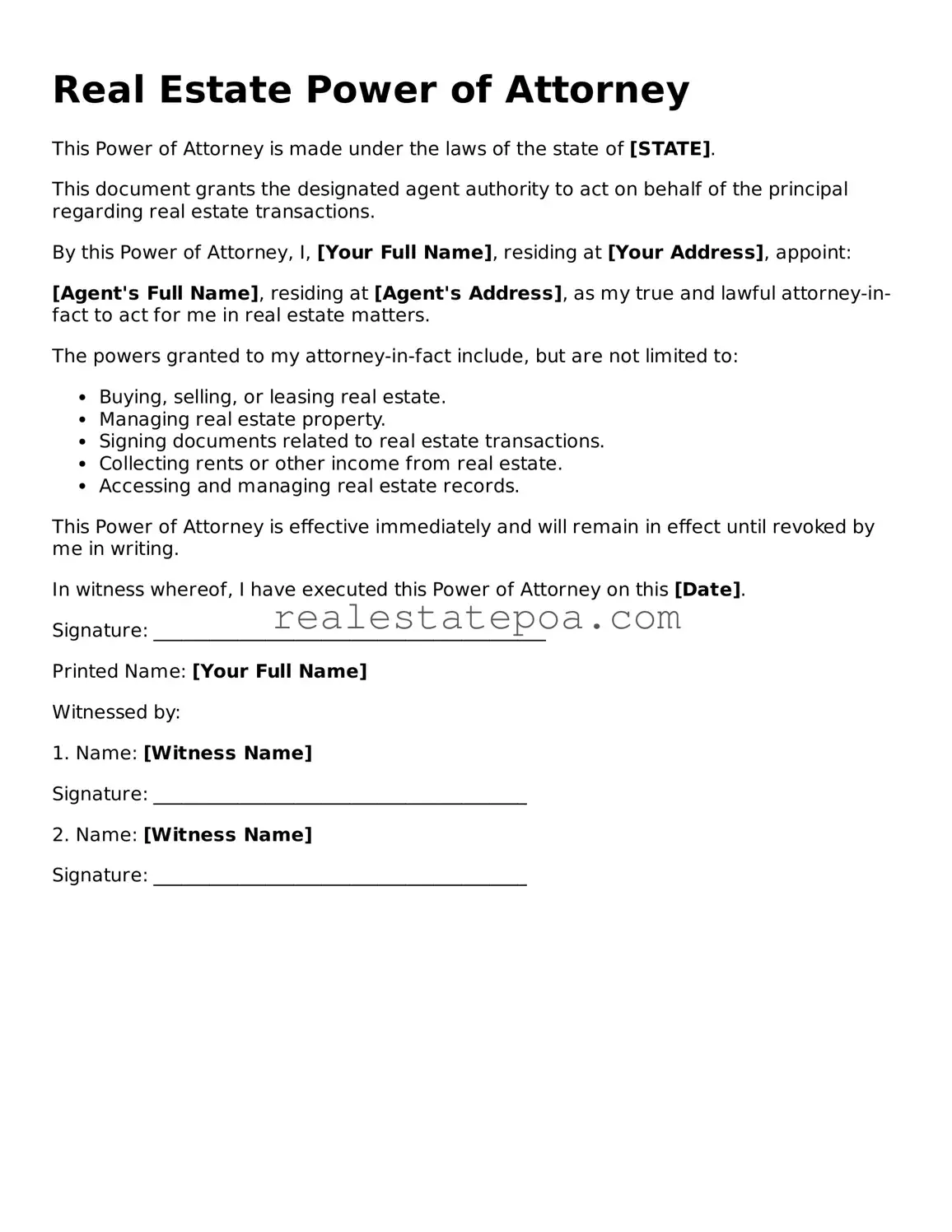Filling out a Real Estate Power of Attorney (POA) form can seem straightforward, but many individuals stumble over common mistakes that can lead to significant issues down the line. Understanding these pitfalls is crucial for ensuring that your document serves its intended purpose effectively.
One frequent mistake is not clearly identifying the agent. The agent is the person who will act on your behalf, and it’s essential to provide their full name and contact information. Omitting this information can create confusion about who is authorized to make decisions regarding your property.
Another common error involves failing to specify the powers granted. A POA can be broad or limited in scope. If you don’t clearly outline what powers your agent has, they may not be able to perform necessary actions, or they might exceed their authority, leading to potential disputes.
People often forget to date the document. A missing date can raise questions about the validity of the POA, especially if it’s called into question later. Always ensure that the date is clearly written at the time of signing.
In addition, not having witnesses or notarization can invalidate the document in some states. Many jurisdictions require that a POA be signed in front of a notary public or witnesses to ensure its authenticity. Neglecting this step can leave your intentions unprotected.
Another mistake is using outdated forms. Laws governing powers of attorney can change, and using an old version of the form may not comply with current regulations. Always check for the most recent version to avoid complications.
Some individuals also overlook the importance of discussing the POA with the agent before signing. It’s essential that the person you choose understands their responsibilities and is willing to accept them. A lack of communication can lead to misunderstandings and unfulfilled expectations.
Moreover, not reviewing the document carefully before signing can lead to errors. It’s vital to read through the entire form to ensure all information is accurate and complete. Mistakes made during this step can result in significant legal complications.
Lastly, people often forget to store the document safely. After signing, it’s crucial to keep the POA in a secure place and inform your agent of its location. If the document is lost or misplaced, your agent may not be able to act on your behalf when needed.
Avoiding these mistakes can help ensure that your Real Estate Power of Attorney functions as intended, providing peace of mind and clarity in managing your property affairs.
